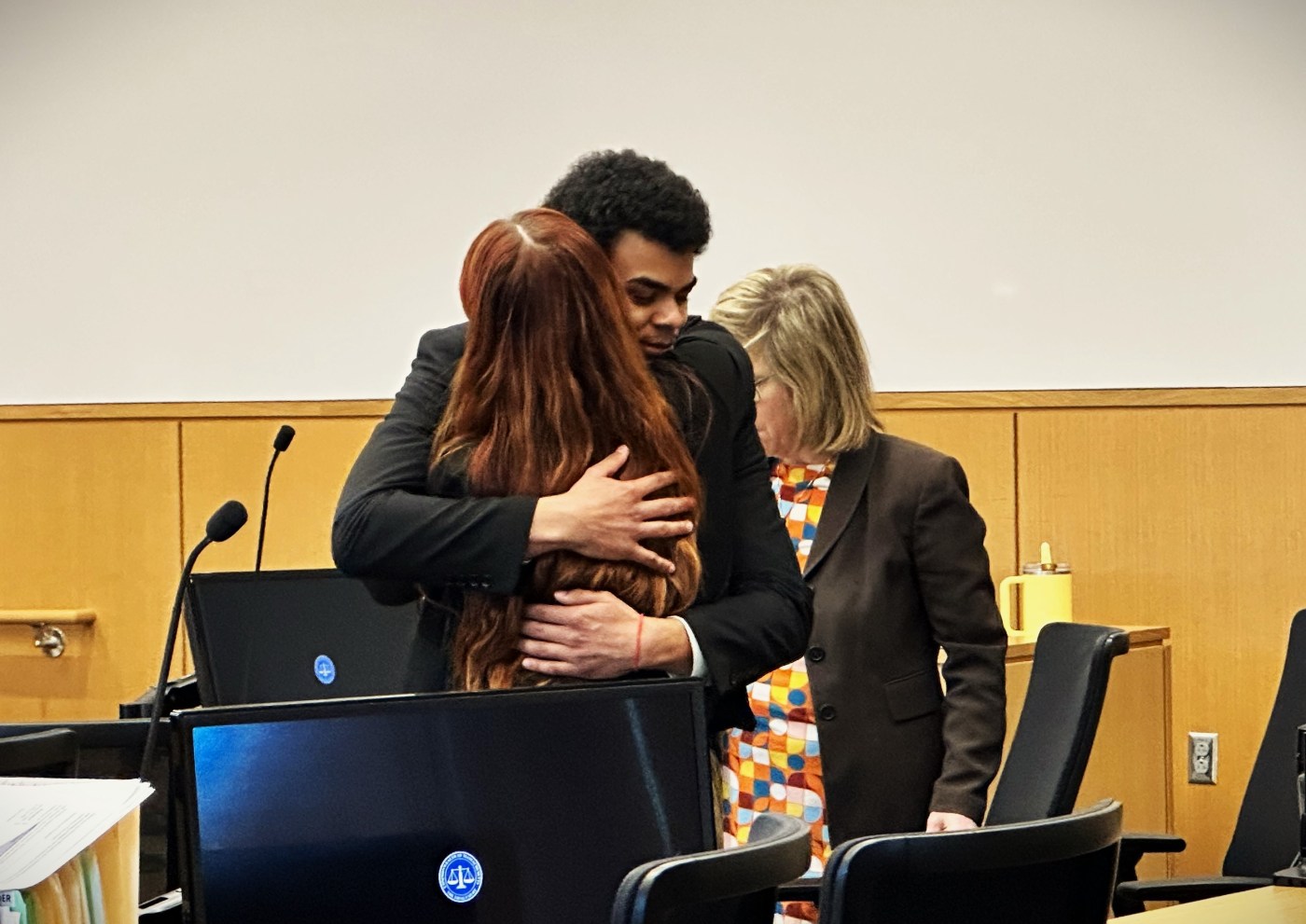A jury has found 27-year-old Donovan Almonte not guilty of motor vehicle homicide by negligent operation in connection with a fatal crash that occurred on September 25, 2022. The incident, which took place at the intersection of Rogers Street and Groton Street in Lowell, Massachusetts, resulted in the death of David Dumais II, a 38-year-old motorcyclist from Stoneham.
The trial commenced on Wednesday at Lowell District Court, over three years after the tragic event. Almonte was accused of causing the crash when his vehicle entered the intersection, resulting in Dumais colliding with his car. During the closing arguments presented on Friday, defense attorney Lisa Wagner portrayed Almonte as an “ordinary driver” facing an unforeseen tragedy, urging jurors to view the incident as an accident rather than a criminal act.
Wagner emphasized that “sometimes you can do all the right things, and bad things still happen,” reinforcing the notion that Almonte’s actions did not constitute negligence. Following less than an hour of deliberation, the jury, comprised of four women and two men, delivered their verdict of not guilty, allowing Almonte to avoid a potential sentence of up to two and a half years in prison.
When the verdict was announced, Almonte visibly exhaled in relief, embraced by his legal team, including co-counsel Gabriela Robin. His emotional response was met with silence from Dumais’ family, who quietly exited the courtroom. Katlyn Dumais, the victim’s widow, provided a statement expressing her disappointment with the verdict. She stated, “The verdict didn’t go as we had hoped. But what I would want people to take away from this horrible incident is that driving is not a right but a privilege.”
The crash occurred around 14:45 on that fateful day when Almonte attempted to make a left turn from Groton Street onto Rogers Street. This intersection, characterized as a T-junction and lacking stop signs or traffic lights, is situated between two businesses. According to testimony from a westbound driver who allowed Almonte to enter the intersection, she had made eye contact with him, signaling her intention to stop.
In her testimony, the witness described how Almonte’s vehicle proceeded into the intersection when she suddenly heard the motorcycle approaching. Emotional as she recounted the moment of impact, she stated, “I didn’t know where it came from.”
Former Lowell Police officer Ronald Reid testified to the chaotic scene he encountered, where Dumais was found unresponsive. An autopsy later confirmed that Dumais died from blunt force injuries. The crash reconstruction conducted by Lowell Police Sergeant Michael Camara revealed that Dumais had left skid marks indicating he had attempted to brake before the collision.
Despite the prosecution’s assertions that Almonte’s failure to yield was the root cause of the crash, the defense countered with expert witness Christopher Jacques, who argued that Dumais was traveling at a higher speed than previously estimated. However, the prosecution raised questions about Jacques’ credibility, noting his financial ties to the defense.
Judge William Travaun Bailey provided jurors with specific instructions regarding the elements necessary for a conviction, emphasizing that they must determine if Almonte’s actions could have reasonably led to foreseeable harm. Ultimately, the jury concluded that the prosecution failed to meet this burden of proof.
As the courtroom proceedings concluded, Almonte declined to comment without his attorneys present. His defense team stated they would not provide further statements regarding the outcome. Meanwhile, Dumais’ family continues to grieve their loss, highlighting the enduring impact of this tragedy on their lives.
